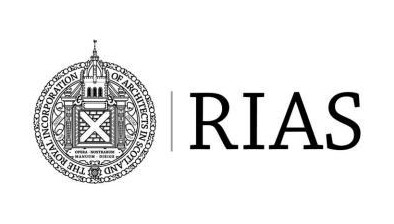Built environment bodies call for increased co-ordination to unlock vision for building communities
Scotland’s built environment professional bodies have issued a joint statement calling on new ways of working that embed resilience into how our places function and develop over time.

Ahead of tonight’s Cross Party Group on Architecture and the Built Environment, the Royal Town Planning Institute Scotland, Royal Incorporation of Architects in Scotland, Royal Institution of Chartered Surveyors in Scotland, Built Environment Forum Scotland, Landscape Institute Scotland and Institution of Civil Engineers Scotland said the next Scottish Government must co-ordinate legislation, strategies and funding if its vision of a sustainable, resilient and inclusive future is to be achieved.
In the joint statement, the coalition said there must be a shift from overlapping and disjointed strategies to complementarity and synergised policy making and from an opportunistic, reactive approach to development, to a planned, proactive approach.
The statement is based around three areas – Professionalism, Prioritisation and People.
Euan Leitch, director of Built Environment Forum Scotland, said “BEFS work across the policy landscape - and collaboration of this kind is what will enable a stronger, regenerative, greener, and just transition for Scotland. Working on a maintenance agenda BEFS want to see policy and the professions working in unison to improve our places to meet climate, community, cultural, and economic need.”
ICE Scotland director, Hannah Smith, said: “To achieve the Scottish Government’s vision of infrastructure supporting Scotland’s resilience and enabling inclusive, net zero and sustainable growth, we must first establish if our infrastructure is fit for purpose.
“There must now be a strategic ‘resiliency audit’ to identify priorities and the most meaningful interventions to ensure our infrastructure is as durable as possible, particularly to withstand the effects of extreme weather.”
Rachel Tennant, chair of Landscape Institute Scotland, said: “LIS believe that multifunctional places needs to be at the heart of our built environment to ensure we can sustainably deliver on a range of societal benefits for the future. Diverse, well designed and managed places can deliver climate change adaption, increase the resilience of our communities and businesses, improve our health and wellbeing, as well as protect and enhance nature. Collaborative and empowering approaches are essential to the delivery of this.”
RIAS president Christina Gaiger said: “The RIAS believe in a Scotland where we protect the environment through legislation and regulate for a zero-carbon future. By adopting quality focused, and collaborative approaches that avoid impacts, we can create a built environment that lowers or eradicates energy demand. The Climate Crisis and the experience of the pandemic illustrate that change is needed but also that it can happen.”
RICS Scotland national board chair, Richard Burnett, said: “As we look towards a green recovery from the coronavirus pandemic, Scotland’s built environment professionals will play a pivotal role in tackling some of the most prominent domestic issues in Scotland, including the lack of adequate housing, renewing our high streets, creating a 21st-century infrastructure network and addressing the challenges of climate change.
“A coordinated and collaborative approach will provide the leadership and expertise that will help guide decision makers in ensuring a swift recovery and economic prosperity.”
Barbara Cummins, convenor of RTPI Scotland, said: “Covid-19 has allowed us to appreciate the importance of the places we live in. A more coordinated approach across government will allow us to create the ‘twenty minute neighbourhoods’ that people need so that they live in well-designed, attractive, healthy and sustainable communities where they have local access to the services, shops and facilities they need on a daily basis.”














